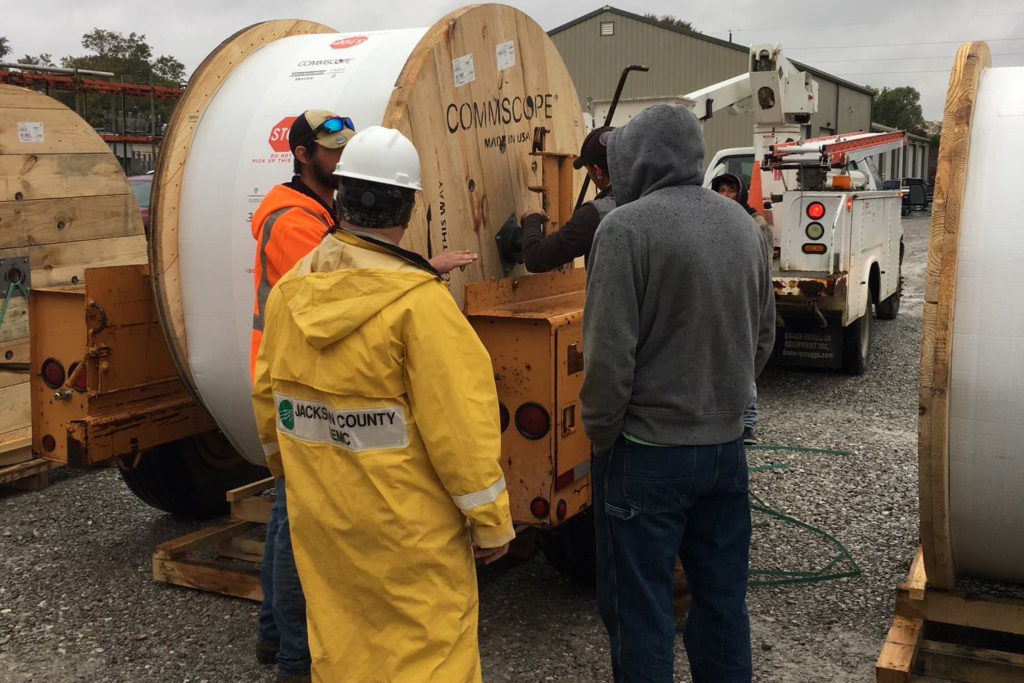
With a major obstacle lifted by state lawmakers and backed by the unanimous support of its board, an Indiana electric cooperative is building a fiber network to deliver broadband to every member.
While a few electric cooperatives have managed to provide internet service in Indiana, Jackson County REMC is the first to undertake a broadband build-out under a new law that eliminates the need to adjust private electric easements with existing above-ground infrastructure, which co-op officials called a key obstacle.
“Having to renegotiate the easements and the cost associated with that would be a major setback for the project,” said Mark McKinney, general manager of the Brownstown-based co-op.
Scott Bowers, vice president of government relations at Indiana Electric Cooperatives, said with the new law in place, a number of Indiana co-ops are taking a close look at broadband deployment.
“Several cooperatives are assessing the feasibility and discussing how they might be able to fill the gap for their members,” he said.
After doing due diligence over 18 months, Jackson County REMC in November sent crews to prep for building the initial 340 miles of what will be a more-than-2,000-mile fiber network. It will include 220 miles of fiber between all 20 substations within the co-op’s service territory and 120 miles of distribution fiber to the home.
Completion of the $62 million network is expected to take four to five years. Beta tests to work out the bugs will take place early next year, and member rollout will begin in spring 2018.
“Our members want us to do it,” said McKinney.
Jackson County REMC conducted a nonscientific member survey in 2016 and received an overwhelming response for it to provide high-speed internet. In February, the co-op did a statistically valid survey with similar results.
“Members said they would rather take it from us than somebody else. It comes down to us having a good relationship with members,” said McKinney. “They trust us, they see us as their energy adviser, and they see us as a trusted source.”
The green light from directors came “almost 80 years to the date of when we formed the co-op back in 1937,” McKinney said. The board “gave us the directive to come up with the plan so that every member to the last mile would have the option to be served.”
Evoking what Jackson County REMC calls “rural connectification,” Matt Persinger, IT manager, said the benefits to members for accessible high-speed internet can be compared to those who first received electricity in what was called “rural electrification.”
“It’s the same principle, the same reasons behind the broadband project, and we think it will have similar impact: changing people’s lives,” he said.
Cathy Cash is a staff writer at NRECA.